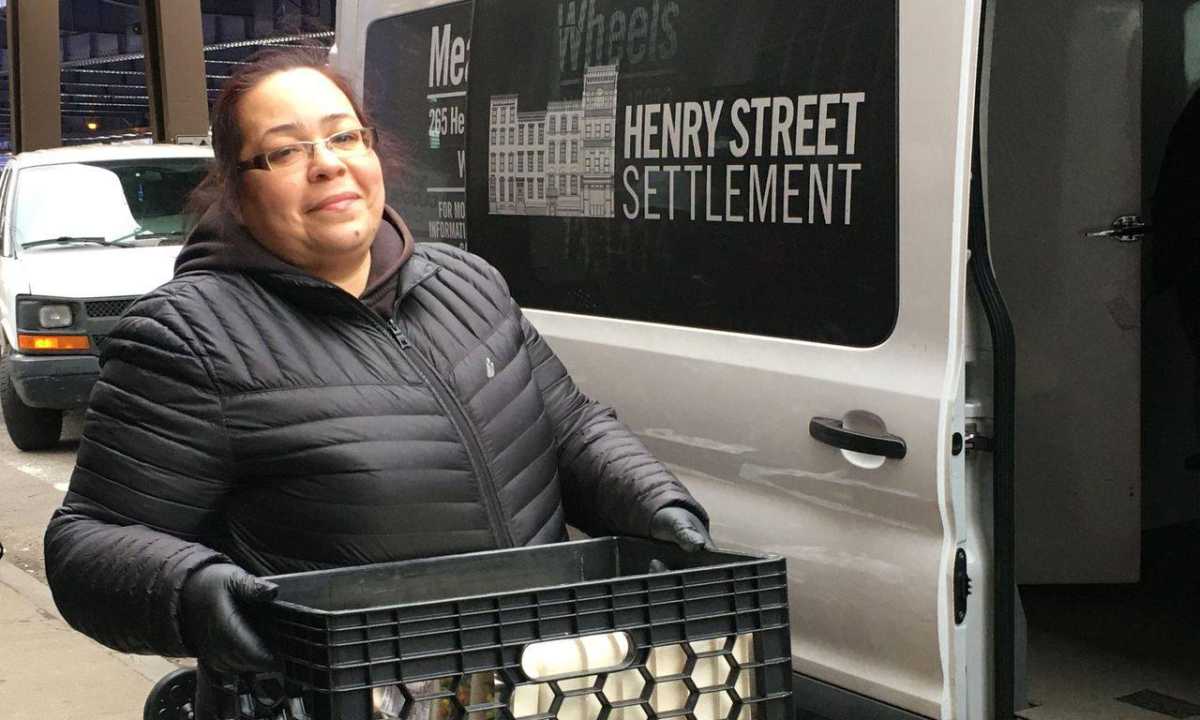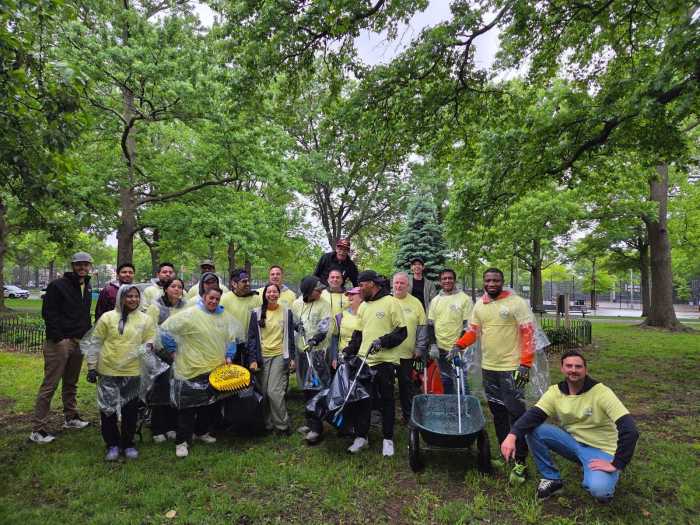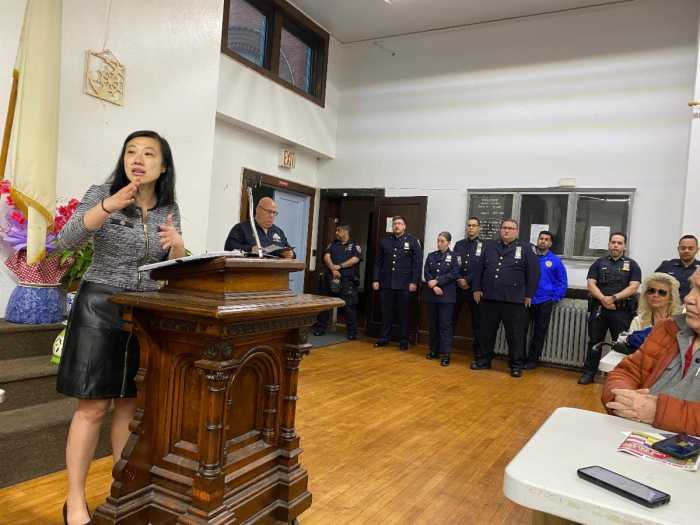The coronavirus pandemic has put nonprofits serving at-risk communities across New York City in a costly quagmire — providing essential services to more New Yorkers in need while the threat of government cuts looms on the horizon.
One such organization, the Henry Street Settlement based on the Lower East Side, has invested heavily in supporting the thousands of people it serves, according to president and CEO David Garza. Through June 30, the nonprofit projects that it will have spent $2.5 million on its pandemic response, which includes everything from offering pay increases for frontline workers, food distribution to the community, childcare stipends and even emergency cash payments to people in need.
“Our priority has been from day one to support the people we serve, keep the staff functional and look at business continuity,” Garza said in an interview Monday with amNewYork Metro. “I think that human service organizations in times of human crises have a unique responsibility to step up and execute our mission, and deal with the implications and ramifications accordingly.”
Though the Henry Street Settlement has been able to offset some of these expenses through an increase in donations from private citizens and philanthropists, Garza warned that increased government funding is sorely needed to avoid some difficult staffing decisions in the weeks ahead.
“Our commitment is that we want to come out of this crisis as fit [financially] as possible,” Garza said. “We might be injured, we might be tired, but we still want to maintain our fitness. [But] if the structural support for our summer programming has been compromised, we have to look at restructuring and reducing staff accordingly.”
Meeting the growing crisis
Nonprofit groups such as the Henry Street Settlement are now spending a fortune on unexpected expenses to continue operating — from technical upgrades enabling employees to telecommute, to hiring temporary staffers to replace workers who are out sick.
At the same time, these organizations have had to cancel lucrative fundraisers, which serve as primary sources of revenue, because of capacity restrictions related to COVID-19.
Meanwhile, the nonprofits continue to serve those in need during the crisis through programs such as food and meal delivery. The number of people served has only grown as the economic crisis related to the pandemic bore down on the city and country.
The Center for an Urban Future report released a report on May 11 which found that several nonprofits that they contacted already have financial losses exceeding $1 million. While the city honored existing contracts for the current fiscal year, the report indicated that many nonprofits might not be compensated by the city for expenses occurred between late March and late April — the peak of the coronavirus pandemic in New York City.
“Human services nonprofits have been the unsung heroes of this health and economic crisis, but a growing number of them may not be financially strong enough to continue meeting the needs of vulnerable New Yorkers,” said Jonathan Bowles, executive director of the Center for an Urban Future. “It’s vital that city and state leaders ensure the financial stability of the nonprofits responsible for delivering vital safety net services in New York.”
The report found that the Catholic Charities of the Archdiocese of New York expects to lose $3 million in revenue due to canceled or postponed fundraising events. God’s Love We Deliver estimates it has more than $1 million in unexpected expenses related to the pandemic response.
A nonsensical cut
The Queens Community House projects $1.1 million in revenue losses from the cancellation of its 17 summer camps, and another $500,000 hit resulting from the cancellation of the city’s Summer Youth Employment Program.
The loss of the Summer Youth Employment Program is a particularly devastating blow for both the organization and the young adults and children they serve, according to Ben Thomases, executive director of Queens Community House. It also jeopardizes the organization’s ability to launch summer programs for 2021.
“It makes no sense to leave thousands of young people with nothing to do this summer,” Thomases told amNewYork Metro in an interview. “We understand that it may not be safe to congregate, but we have the capacity to do remote programming. Without that, they’re going to congregate anyway with each other. These funding cuts for summer program are a loss for the academic and professional development for our young people, a loss for our families who are struggling, and a loss for public health.”
Troubling letter from City Hall
As if the losses weren’t bad enough, the city sent out a letter to nonprofit leaders on April 21 informing them that not all of their costs might be covered by City Hall.
The letter, signed by the C-19 HHS Response Team, indicated that “the city will be reimbursing discretionary contract expenses incurred on or before March 22, the date that Governor Cuomo placed New York on “pause.” However, “for expenses incurred after March 22, the city will be reimbursing costs incurred for ‘essential work.’”
There’s one problem with that statement: the definition of ‘essential work’ wasn’t made clear. The letter went on explain that “the City Council is in the process of determining what existing scopes of work constitute ‘essential work.’”
amNewYork Metro reached out to the Mayor’s office for comment about this report, and is awaiting a response.
Thomases said the C-19 HHS Response Team letter “caused weeks of wasted effort” among Queens Community House staff and other nonprofit leaders, as they interpreted it as a sign of impending retroactive funding cuts. They scrambled to create contingency plans to keep services in place and increase fundraising efforts in the event they lose a vital stream of revenue.
But in recent days, Thomases reported, he received clarity from two city agencies that indicated the nonprofit’s work was considered essential, and would indeed be reimbursed by the city.
“I really urge the decision-makers in this city, both on the City Council side and the administration side, to consult with local nonprofit leaders as they make decisions about what comes next,” Thomases said. “All of these challenges that we have been talking about could have been made much easier for us if we had a place at the table in their discussions.”
Meanwhile, the Center for an Urban Future recommended in its report that the city and state work with nonprofits to avoid program cuts, reimburse bonuses provided to essential frontline workers, ensure protective gear and childcare to frontline workers, ease contract budget restrictions to make additional funds available, and ensure that all COVID-19-related expenses are covered.
You can read the full report at nycfuture.org/research/essential-yet-vulnerable.
This story originally appeared on amny.com.




































